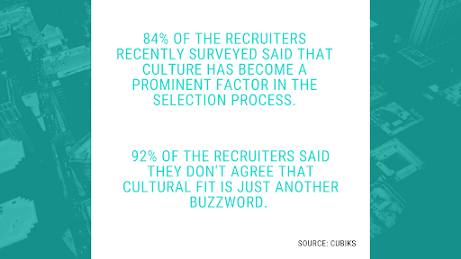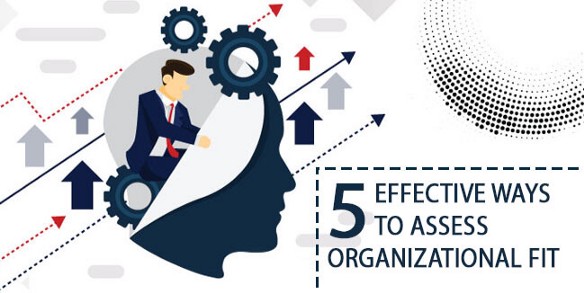Let’s imagine this scenario for a moment. You’ve recruited an amazing candidate. After four months of their employment, your new employee starts showing signs of disengagement and lack of motivation. They show up late for work, miss their deadlines, and always leave the office early. When you talk to them, they seem to love their job and are happy with their benefits. Despite their satisfaction with the job, something seems wrong.
What’s wrong is that you’ve hired yourself a cultural misfit. And it won’t be long before they leave the job and you have to start the recruitment process all over again. Failing to hire people who would be a cultural fit for your company can be costly, time-consuming, and nerve-wracking.
By hiring the right people for your company, you’ll:
- Increase productivity
- Reduce turnover
- Increase the quality of hire
- Boost employee engagement
That’s why I’m going to walk you through 5 effective ways of assessing cultural fit and hiring only the best people for your company. Let’s dive in!
Give pre-employment situational judgment tests
Assessing cultural fit is not exactly a walk in the park. It’s a subjective task and not an exact science. In many cases, the hiring process can be biased and based on the candidate’s race, gender, and nationality. That’s why many companies are using pre-employment situational judgment tests.
What are situational judgment tests and how can they help? Here’s an example:
You had a busy day at work. Caught up in a pile of tasks, you accidentally send an e-mail that contains classified client information to the wrong person. What is the best thing to do in this situation?
- Leave for the day and think of how you’ll deal with the problem tomorrow.
- Send the email to the right person and leave things like that.
- Send a follow-up email to the wrong person, telling them you made a mistake. Then you send the email to the right person.
- Tell your manager of the mistake you did and let them deal with the situation.
Assessments like these are a great way to assess a candidate’s problem-solving, decision-making, and interpersonal skills. As you can see from the example above, you need to present your candidate with a situation that they might experience in the job, and then suggest a number of possible actions. The candidate’s job is to choose the most effective course of action.
Ask candidates cultural fit interview questions
The best candidate for the job should possess the required job skills and qualifications, but it should also fit well with your company. They should share the same values as your company and thrive in your environment.
Here are some sample cultural fit interview questions that you can ask your candidates. However, it’s important to remember that you need to choose the questions that will best assess the characteristics you’re looking for in a candidate in your specific workplace environment.
- Do you like working alone or with a team? Explain.
- Do you prefer getting feedback through performance reviews or regular meetups with your manager?
- What’s the type of work environment in which you’re most productive?
- What will make you leave your job?
- What are the characteristics of the best boss you ever worked with
- Describe the type of management that will motivate you to do your best work?
- What do you think about becoming friends with a coworker?
- Describe your most positive personality trait and why?
- What is your worst personality trait and why?
- What values are important to you as a person?
A trial period in the office
A trial period in the office is not always a possibility. If you work with a remote team, they can’t simply get on a plane and fly into your country for an afternoon at the office. However, if your team is based in-house, then a trial period is most certainly on the table.
The most ideal time for a candidate to come down to the office is when you have a team-building activity planned or some other type of social event. The candidate will get the chance to experience how it feels to be part of your company and will communicate with your current employees. You’ll see how the candidate interacts with them in a relaxed setting and whether they blend in. It will give you an insight into their interpersonal skills.
Do you see them working at your company?
Make your interview process human
Apart from testing your candidates in a professional setting, a smart idea would be to see them in a more relaxed, and informal environment. Assessing their cultural fit doesn’t have to happen at the office, sitting on a table in the conference room. Why not take them out for lunch or grab a cup of coffee together?
You can even invite other members of the team to meet the candidate. You’ll have the chance to see how the team bonds before welcoming the candidate to your company. After all, they’ll be collaborating and communicating daily so you want to make sure that there’s a positive feeling among the team.


Check their references
If after all the situational judgment tests and trial periods at the office you still feel uncertain about a candidate’s cultural fit, the next smart move is to check their references. By doing this, you’ll manage to obtain independent information about your candidate’s previous job performance.
However, make sure you craft your questions wisely. Don’t ask the referee closed-end questions like “Was she a good employee”? or “Was he arriving on time”? You’re not going to learn much about their interpersonal, problem-solving, or decision-making skills.
The best thing you can do is to ask the referee for more in-depth questions. Here are a few examples:
- Why did (the candidate) leave the company?
- Did (the candidate) get along well with co-workers?
- Did (the candidate) prefer to work alone or on a team?
- How did (the candidate) handle conflict? How about pressure? Stress?
- Is there anything else that you would like to share with me about their job performance?
Final Word
Of course, relevant job experience and a certain degree of technical skill are important qualities of a good employee. However, research shows that seeking people who are a cultural fit for the company is the most essential part of an effective and strategic hiring process.
Companies today struggle with low quality of hire and high turnover rates. There’s significant disengagement in employees and a drop in their productivity levels. If companies want to battle these issues, then assessing organizational fit before making a new hire is a must.
If this sounds like your company’s priorities, use the tips mentioned above to effectively measure cultural fit, and make the best hire for your company.










